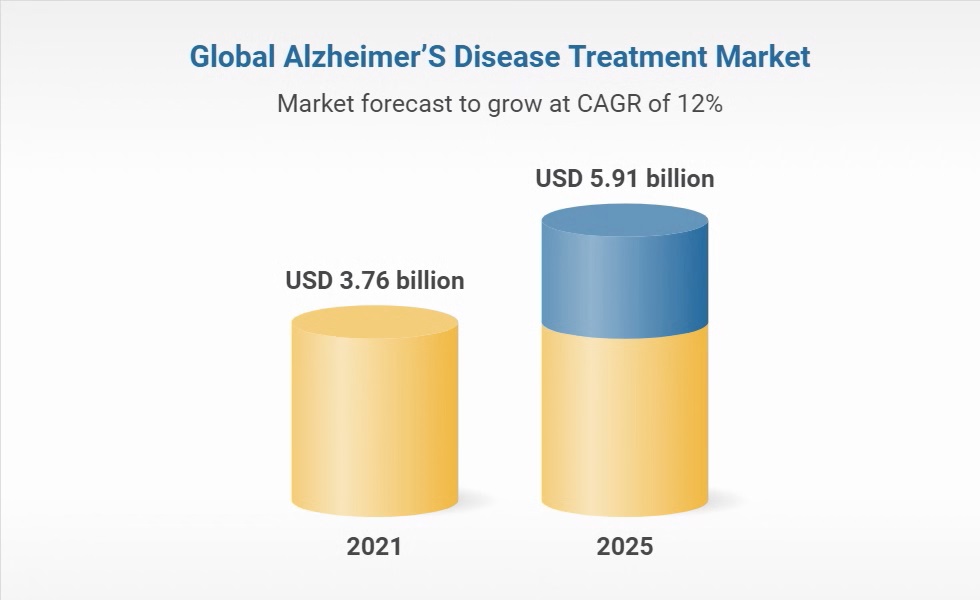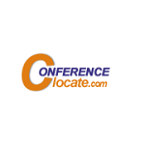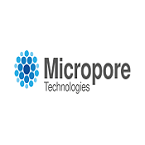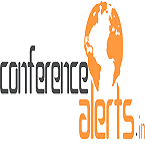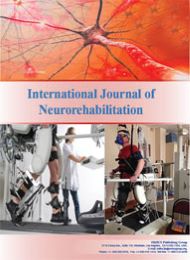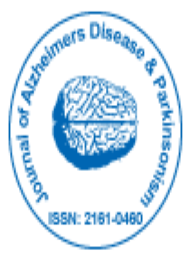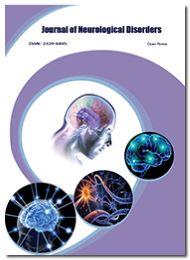Theme: Venue: Hyatt Place London Heathrow Airport
Dementia Congress 2023
We invite all the participants from all over the world to attend 3rd Annual Dementia Congress 2023 during July 17-18, 2023 at London, UK with the Theme: “Learn new ways to help prevent or slow the onset of dementia” which includes prompt keynote presentations, Oral talks, Poster presentations and Exhibitions.
Dementia is defined as inadequate blood flow can damage and eventually kill cells anywhere in the body.
In Dementia, changes in intuition aptitudes here and there happen all of a sudden after strokes that piece real cerebrum veins. Vascular mind changes frequently exist together with changes connected to different sorts of dementia, including Alzheimer's sickness and dementia with Lewy bodies. Dementia side effects might be most evident when they happen not long after a noteworthy stroke incorporates disarray, bewilderment, inconvenience talking or understanding discourse and vision misfortune.
Various companies in the multi infarct dementia market are adopting several economic strategies such as collaborations, expansions and acquisitions to keep a strong position and gain advantage in the market. Some major companies in the market include Forest Laboratories, Inc., Janssen Pharmaceuticals, Inc., Novartis Pharmaceutical Corporation, Pfizer, Inc. and Eisai, Inc.
Join Dementia 2023 Conference for promoting your research article and to facilitate prestigious awards in all categories.
Participation Categories:
- Keynote Presentations
- Oral and Poster presentations
- Young Research Forums
- Exhibitions
- Workshop/Symposia
- Media Partners
- Sponsors
Why to attend??
Dementia 2023 Conference is a unique forum to bring together worldwide distinguished academics in the field of Neuroscience and Neurology, Nutrition, Researchers, Public health professionals, Scientists, Academic scientists, Industry researchers, Scholars to exchange about state of the Research and Development.
Aim of Dementia 2023 conference is stimulate new ideas for treatment that will be beneficial across the spectrum of Dementia. A Unique Opportunity for Advertisers and Sponsors at this International event.
Target Group:
Neurologists and Executives | Physicians | Neuroscientists | Specialists Researchers | Health mind experts | Professors | Industrial Specialists Neurosurgeons | Psychiatrist | Nutritional Researchers | Lecturers and Understudies from the scholarly world in the investigation of Dementia | Students from the scholarly community in the examination of Neurology | Neurologists and Directors | Health care professionals | Mental Health Neurobiologist | Neurological Surgeon | Neurologist | Neuroanatomist
Track 01: Dementia
Dementia refers to a loss of thinking, memory, and other mental abilities. Many conditions can cause dementia. A neurodegenerative disorder refers to damage or disease in the parts of your brain responsible for learning, memory, decision making, and language. As one of the major neurocognitive disorders, dementia is not a disease. Alzheimer's disease is the most common cause of dementia and is almost always associated with 50 other conditions. There are two types of dementia: Cortical Dementia (problems with the cerebral cortex) and Subcortical Dementia (problems with the brain beneath the cortex).
Track 02: Ageing and Dementia
A decline in memory and other mental abilities is known as dementia. Up to 7 percent of adults 60 and older suffer from dementia, according to the Alzheimer's Association. Dementia can cause other symptoms in addition to memory, language and decision-making problems. There are a variety of mood changes, including irritability and depression.
Track 03: Alzheimers disease
As a result of Alzheimer's disease, the brain shrinks (atrophys) and brain cells die, a progressive neurologic disorder. When a person's ability to function independently is affected, Alzheimer's disease is the most common cause of dementia.
Track 04: Bioinformatics Approach for Dementia
Massive amounts of data can be collected with the spread of microarrays and next-generation sequencing technologies. To extract the relevant information from these collections of data, data-mining techniques for "big data" are required. Through bioinformatics studies, these techniques are applied to biological data. Bioinformatics approaches applied to omics data have revealed the complex pathology of Alzheimer's disease (AD).
Track 05: Brain Injury and Behavioral Neuroscience
Traumatic brain injury is a trouble of various causes, pathologies, and extremely varied and often multifaceted clinical presentations. Because of its preference for brain systems underlying cognitive and multifaceted behavioural operations, it may cause chronic and severe psychiatric illness that needs expert management. Traumatic brain injury is a typical for other neuropsychiatric disorders and may serve as an incubator of new thoughts for neurodegenerative disease.
Track 06: Brain Stimulation and Imaging
Therapies for brain stimulation use directly with electricity to activate or inhibit the brain. Strom can be directly determined by electrodes implanted in the brain or by electrodes placed non-invasively on the scalp. Electricity can also be induced through the use of magnetic fields on the head. Brain imagery and brain stimulation have both enhanced our understanding of normal functional mechanisms and changes related to brain and mental illness. Brain encouragement has also shown promise to reduce brain and mental illness symptoms and allows hypotheses derived from data on brain imaging to be tested.
Track 07: Clinical Trials & Case Reports in Dementia
Medical, surgical, or behavioural interventions are evaluated through clinical trials. Neurotransmitter modification, anti-neuroinflammation and neuroprotection interventions, cognitive enhancement, and behavioural psychological symptoms are among the possible interventions being tested in ongoing clinical trials.
Track 08: Dementia Care Management
Computer-assisted assessment determines a personalized array of intervention modules and subsequent success monitoring are used in Dementia care management. Incorporating Dementia care management into routine care could improve the treatment and care of people with dementia and reduce caregiver burden.
Track 09: Dementia Rehabilitation and Therapy
In cognitive rehabilitation, people with dementia engage in or manage everyday activities, function optimally, and maintain as much independence as possible, based on a problem-solving framework. People with dementia may benefit from cognitive stimulation because it improves their thinking and memory skills.
Track 10: Dementia Stages
Memory, attention, logical reasoning, and other mental abilities are all affected by Dementia. Changes that are so severe that they interfere with social or occupational functioning are considered to be "severe." Dementia usually progresses through these phases. Depending on the area of the brain affected, the symptoms may vary.
Track 11: Drug Development in Dementia
From bench to bedside, drug development is the process of bringing a novel drug to market. As a progressive and irreversible decline in cognition, dementia affects a patient's pre-existing level of functioning, according to its definition. Alzheimer's disease (AD) is the most common cause of the clinical syndrome of dementia. In Alzheimer's disease, drug development is based on pathophysiological theory that is constantly evolving.
Track 12: Frontotemporal dementia
FTDD is a rare form of dementia that affects behaviour and language. Problems with mental abilities are caused by gradual brain changes and damage. The front and sides of the brain are affected by frontotemporal dementia. If you swear, steal, are more interested in sex, or have poor personal hygiene habits, you may be showing signs of depression.
Track 13: Huntingtons disease
It's a progressive brain disorder caused by a faulty gene, and it's a leading cause of dementia. There are changes in the central part of the brain that affect the brain's ability to move, think and feel. Arms, legs, the head, face, and upper body move uncontrollably, which is a hallmark symptom of Huntington's disease. Memory, concentration, judgement, and the ability to plan and organize are also affected by Huntington's disease.
Track 14: Lewy body Dementia
There are abnormal microscopic deposits in the brain that damage brain cells over time, causing Lewy body dementia. As a result of Lewy body dementia, the brain's cognitive abilities gradually decline. Hallucinations and changes in alertness and attention are common in people with Lewy body dementia (LD). Parkinson's disease can also cause rigid muscles, sluggish movements, difficulty walking and tremors.
Track 15: Mild Cognitive Impairment (MCI)
Mild cognitive impairment (MCI) is a stage between normal ageing and dementia. Problems with memory, language, thinking or judgement characterize this condition. For many years, people with MCI do not develop Alzheimer's or dementia.
Track 16: Neuro Oncology and CNS
Brain and spinal cord neoplasms, many of which are very dangerous and life-threatening, are studied by neuro-oncologists in this field. Gliomas of the brainstem and pons, glioblastoma multiforme, and high-grade astrocytoma are among the worst of the malignant brain cancers. There are two main parts to the central nervous system (CNS), which are the brain and spinal cord. Meninges are three layers of membranes that surround the brain and spinal cord.
Track 17: Neurodegenerative Diseases
As a result of neurodegenerative disorders, certain parts of the brain die. As a result, they are some of the most difficult diseases to treat and can have debilitating effects. Among the most common movement disorders, Parkinson's disease and Huntington's disease are among the most severe. A neurodegenerative disease is a group of chronic, debilitating conditions characterized by the progressive degeneration and death of nerve cells.
Track 18: Neurological Brain diseases
According to medical definitions, neurological disorders affect the brain, nerves throughout the body, and the spinal column. The brain, spinal cord, and other nerves can be affected by abnormal structural, biochemical, or electrical changes.
Track 19: Neuropharmacology
Neuropharmacology is the learning of how drugs affect cellular function in the nervous system, and the neural mechanisms through which they influence behavior. Behavioural neuropharmacology and molecular neuropharmacology are the two major branches of neuropharmacology. Drug dependence and addiction are studied in behavioural neuropharmacology.
Track 20: Neuroscience and Artificial Intelligence
The advances in artificial intelligence systems can contribute to advancing neuroscience and revealing brain secrets. This provides for better models for the simulation of the human brain by neuroscientists and researchers. Neural networks act as "virtual brains" that capture our brain's representation. The link between artificial intelligence and neuroscience can lead to an understanding of the brain mechanisms that generate human awareness.
Track 21: Novel Therapeutics
Novel therapies are therapies completely novel to veterinary medicine either because they are genuinely novel and have not been before used in the context of a medicine, or new only to the veterinary domain, though well known in terms of research, and possibly in the context of human medicine.
Track 22: Parkinson disease
Movement is affected by Parkinson's disease, a disorder of the nervous system that progresses with time. A slight tremor in one hand can be the first sign of the disease. In addition to causing tremors, this disorder can also cause stiffness or sluggishness of movement. Dopamine levels drop due to nerve cell damage in the brain, causing Parkinson's symptoms. Parkinson's disease often begins with a tremor in one hand, according to a new study. Movement is sluggish and there is a loss of balance. Controlling Parkinson's symptoms with medication is possible.
Track 23: Recent Advancement in Treatments of Dementia
Alzheimer's disease, frontotemporal dementia and dementia with Lewy bodies are among the diseases for which research is being conducted. As a general term, dementia describes a wide range of symptoms that affect memory, daily functioning, and communication abilities. With time, Alzheimer's disease worsens and affects memory and thinking.
Track 24: Semantic Dementia
Those with semantic dementia have trouble matching words with their images or meanings (semantic memory). However, patients with this disorder are still able to speak and remember daily events quite well (episodic memory). With svPPA, the average lifespan is 12 years, although this can vary from person to person.
Track 25: Therapeutic Targets and Mechanisms for Treatment
Alzheimer's illness could be a progressive neurodegenerative disease that's characterized histopathologically by the presence of plaques, principally composed of Abeta amyloid and the tangles, principally composed of hyper phosphorylated alphabetic character. To date, there's no treatment which will reverse the illness, and everyone this medical specialty is directed to address the symptoms of the illness. Here we tend to describe the efforts dedicated to attack the plaques and, in additional detail, the method of neurofibrillary degeneration, connected to the presence of the hyper phosphorylated tubule associated super molecule alphabetic character. We’ve known the various purported targets for medical specialty and the current data on them.
Track 26: Vascular Dementia
An ageing population with obesity or diabetes is at a higher risk of developing vascular dementia, which results in memory loss. It causes difficulty with reasoning and judgement in the early stages. At a later stage, the memory is also affected by the disease. When conditions that affect heart health are under control, they can help slow the progression of the condition. Medications to treat Alzheimer's disease may help control cognitive symptoms.
Market Analysis and Insights of Dementia - Alzheimer Disease Market
The Dementia - Alzheimer disease market is expected to gain market growth in the forecast period of 2021 to 2028. Data Bridge Market Research analyses the market to account to grow at a CAGR of 10% in the above mentioned forecast period.
Dementia is a common term for a decline in mental ability harsh enough to obstruct with daily life. Alzheimer's is the most common cause of dementia. Dementia defines various numbers of symptoms which includes memory loss and problems with thinking, problem-solving or language.
The rise in prevalence of Alzheimer’s across the globe is amongst the important factor expected to intensify the growth and demand of dementia - Alzheimer disease market. In addition, the rise in geriatric population and increase in awareness regarding neurodegenerative diseases in developing countries are also expected contribute to the growth in the global market over the forecast period of 2021 to 2028. Also the strong pipeline of innovative treatment options and huge healthcare spending is also likely to enhance the growth of the market. Furthermore, the high demand for personalized drugs and affordable diagnostics tests are also one of the significant factors expected to fuel the growth of the dementia - Alzheimer disease market.
The increase in research and development activities in disease modifying drugs and rapid surge in investment by major key players in the clinical studies of advanced treatment options are anticipated to offer significant growth opportunities for the market in the forecast period of 2021 to 2028.
However, the high cost of advanced treatments and various side-effects associated with certain treatments are expected to curb the growth of the dementia - Alzheimer disease market, whereas the high cost of prospective drugs can challenge the growth of the dementia - Alzheimer disease market.
This dementia - Alzheimer disease market report provides details of new recent developments, trade regulations, import export analysis, production analysis, value chain optimization, market share, impact of domestic and localized market players, analyses opportunities in terms of emerging revenue pockets, changes in market regulations, strategic market growth analysis, market size, category market growths, application niches and dominance, product approvals, product launches, geographic expansions, technological innovations in the market.
Global Dementia - Alzheimer Disease Market Scope and Market Size
The Dementia - Alzheimer disease market is segmented on the basis of drug class and distribution channel. The growth amongst these segments will help you analyze meager growth segments in the industries, and provide the users with valuable market overview and market insights to help them in making strategic decisions for identification of core market applications.
On the basis of drug class, the dementia - Alzheimer disease market is segmented into cholinergic/cholinesterase (ChE) inhibitors, memantine and combined drug. Cholinergic/cholinesterase (ChE) inhibitors have further been segmented into donepezil, galantamine and rivastigmine.
The distribution channel segment of dementia - Alzheimer disease market is segmented into hospital pharmacy, retail pharmacy and online sales.
Dementia - Alzheimer Disease Market Country Level Analysis
The Dementia - Alzheimer disease market is analyzed and market size insights and trends are provided by country, drug class and distribution channel as referenced above.
The countries covered in the dementia - Alzheimer disease market report are U.S., Canada and Mexico in North America, Peru, Brazil, Argentina and Rest of South America as part of South America, Germany, Italy, U.K., France, Spain, Netherlands, Belgium, Switzerland, Turkey, Russia, Hungary, Lithuania, Austria, Ireland, Norway, Poland, Rest of Europe in Europe, Japan, China, India, South Korea, Australia, Singapore, Malaysia, Thailand, Indonesia, Philippines, Vietnam, Rest of Asia-Pacific (APAC) in Asia-Pacific (APAC), South Africa, Saudi Arabia, U.A.E, Kuwait, Israel, Egypt, Rest of Middle East and Africa (MEA) as a part of Middle East and Africa (MEA).
North America region leads the dementia - Alzheimer disease market owing to the rise in awareness regarding Alzheimer’s disease in the U.S. and increase in prevalence of Alzheimer disease. Asia-Pacific is expected to expand at a significant growth rate over the forecast period of 2021 to 2028 because of the improvement in health care infrastructure and rise in awareness regarding Alzheimer’s in countries such as India and China.
The country section of the dementia - Alzheimer disease market report also provides individual market impacting factors and changes in regulation in the market domestically that impacts the current and future trends of the market. Data points such as consumption volumes, production sites and volumes, import export analysis, price trend analysis, cost of raw materials, down-stream and upstream value chain analysis are some of the major pointers used to forecast the market scenario for individual countries. Also, presence and availability of global brands and their challenges faced due to large or scarce competition from local and domestic brands, impact of domestic tariffs and trade routes are considered while providing forecast analysis of the country data.
Patient Epidemiology Analysis
Dementia - Alzheimer disease market also provides you with detailed market analysis for patient analysis, prognosis and cures. Prevalence, incidence, mortality, adherence rates are some of the data variables that are available in the report. Direct or indirect impact analysis of epidemiology to market growth are analyzed to create a more robust and cohort multivariate statistical model for forecasting the market in the growth period.
Competitive Landscape and Dementia - Alzheimer Disease Market Share Analysis
The Dementia - Alzheimer disease market competitive landscape provides details by competitor. Details included are company overview, company financials, revenue generated, market potential, investment in research and development, new market initiatives, global presence, production sites and facilities, production capacities, company strengths and weaknesses, product launch, product width and breadth, application dominance. The above data points provided are only related to the companies’ focus related to dementia - Alzheimer disease market.
The major players covered in the dementia - Alzheimer disease market report are Eisai Co. Ltd., Pfizer, Inc., Sanofi, Teva Pharmaceuticals Industries Ltd., Novartis AG, Allergan, Merz Pharma, Johnson & Johnson Services, Inc., F. Hoffmann-La Roche Ltd, Bristol-Myers Squibb Company, AbbVie Inc., Eli Lilly and Company, Takeda Pharmaceutical Company Limited, Bayer AG, Biogen, AstraZeneca, VTV Therapeutics, H. Lundbeck A/S, TauRx Pharmaceuticals Ltd, and DAIICHI SANKYO COMPANY, LIMITED, among other domestic and global players. Market share data is available for Global, North America, Europe, Asia-Pacific (APAC), Middle East and Africa (MEA) and South America separately. DBMR analysts understand competitive strengths and provide competitive analysis for each competitor separately.
Vascular Dementia 2020 Report
Conference Series hosted the event “2nd World Conference on Vascular Dementia & Movement Disorders” at Singapore City, Singapore during August 26-27, 2020. The conferences were organized with a focus on the themes “Advances and Innovations in Dementia” was a great success where eminent keynote speakers from various reputed companies and Universities made their resplendent presence and addressed the gathering.
The event proceedings were carried out through several Scientific-sessions and plenary lectures, Conference Series would like to express a sincere thankfulness to all the Honourable guests and Keynote Speakers of 2nd World Conference on Vascular Dementia & Movement Disorders. We would like to convey a warm gratitude to all the Honourable guests and Keynote Speakers of Vascular Dementia 2020.
Vascular Dementia 2020 committee would like to convey a warm gratitude to all the Honorable guests and Keynote Speakers, Elizabeth Simon from New York Institute of Technology, USA; Anthony Galea from Galea Professional Medical Inc., Canada; Olivier Morenon from University of Applied Sciences of Western Switzerland, Switzerland; Holly Kooi from Ushine Vienna, Austria; Florian Trummer from Hospital of the Brothers of St. John of God Vienna, Austria; Sejran Abdushi from UBT- High Education Institute, Republic of Kosovo have given a wonderful talk which makes allows the delegates and other attendees to gain the knowledge about main course of the event.
Vascular Dementia 2020 Organizing Committee would like to thank the Moderator of the conference, Julie Benoit from Institut de Formation en Soins Infirmiers, France, who contributed a lot for the smooth functioning of this event and for taking up the responsibility to coordinate during the sessions for smooth functioning of this event. We are indebted to your support.
Conference Series also took the privilege of felicitating Vascular Dementia 2020 Organizing Committee, Keynote Speakers, Plenary Speakers, Chairs and Co-Chairs, Young Researchers and other attendees whose support made the conference a great success.
We also would like to thank all our Speakers, Poster Presenters and Delegates for taking out your time and sharing their research work with our peer network. We are very glad to have shared a great relationship with all these Attendees, associations and we hope to see even greater support in our upcoming events. We would also like to thank Chairs and Co-chairs of the conference, Olivier Morenon from University of Applied Sciences of Western Switzerland, Switzerland; Ursula Serdarevich from Favaloro University, Argentina; Elizabeth Simon from New York Institute of Technology, USA for a being a great support for our event to be a grand success.
A series of lectures by distinguished professionals discussed the recent trends and issues in inter-disciplinary Rheumatology and its technical advancements.
Save your dates for the most awaited event of 2023
With a great response and feedback which we received from participants and supporters from Vascular Dementia 2020, we are proud to announce our upcoming conferences in the Series 3rd Annual Dementia Congress 2023 on July 17-18, 2023 in London, UK with the theme of Learn new ways to help prevent or slow the onset of dementia.
Some of our conference images are as follows:
The main aim of this conference is to solicit the gracious presence of our honourable, to the upcoming conference “3rd Annual Dementia Congress 2023” that is going to be held during July 17-18, 2023 in London, UK to share and exchange their knowledge.
It is an International platform for business delegates, B2B meetings, poster presentations, workshops, symposia, networking and more. It will offer a platform wherein you can ensure enormous exposure and networking by exhibiting products and services. Grab the opportunities, and share your innovative ideas, new technologies and Recent researches.
Dementia 2023 witnesses an amalgamation of peerless speakers who enlightened the gathering with their contribution towards the prevention of Dementia related difficulties, its effects and treatment on Neurology.
For being a Experts in Neurology, we hope that this platform gives knowledge and new updates by undergoing with the several interactive sessions to encourage the exchange of innovative ideas in the field of Neurology and its advancements, in that all the session talks are consider to be a great talks which makes the delegates, exhibitor, collaborators and other speakers feels so much interesting.
Being a significant expert in this area we would like to Invite you as an International Organizing Committee Members, Speakers, Keynote speakers, Young Research forum, Sponsors and Exhibitor, etc for Dementia 2023. Our goal is to deliver an outstanding program which covers the entire spectrum of research & innovations in Dementia, Alzheimer’s disease, Dementia Care Management and share the cross-cultural experiences of various principles and practices.
The centre of the activity of Dementia 2023 is to produce the clear visual definition by undergoing with Oral Presentation, Poster presentation, Workshop, Exhibition, networking and interacting session
With the feedback from your renowned Speakers, we have added some of the new Session tracks that needs to be focused such as such as Dementia, Ageing and Dementia, Alzheimers disease, Drug Development in Dementia, Neurodegenerative Diseases, Neurological Brain diseases, Novel Therapeutics, Parkinson disease, Semantic Dementia Vascular Dementia. Dementia 2023
With the great support we have successfully completed Vascular Dementia 2020 and we are expecting huge response and support from the Neurology Doctors, Neurology Professionals, Young researchers, Students, Delegates, Directors and other Neurology related companies to have your gracious presence at Dementia 2023 on May 22-23, 2023 in Vienna, Austria to make this congress a great successful event of the year 2023
Join our team Dementia 2023 at this beautiful city of Austria and let’s make this professional gathering a Great success.
Conference Highlights
- Dementia
- Ageing and Dementia
- Alzheimers disease
- Bioinformatics Approach for Dementia
- Brain Injury and Behavioral Neuroscience
- Brain Stimulation and Imaging
- Clinical Trials & Case Reports in Dementia
- Dementia Care Management
- Dementia Rehabilitation and Therapy
- Dementia Stages
- Drug Development in Dementia
- Frontotemporal dementia
- Huntingtons disease
- Lewy body Dementia
- Mild Cognitive Impairment (MCI)
- Neuro Oncology and CNS
- Neurodegenerative Diseases
- Neurological Brain diseases
- Neuropharmacology
- Neuroscience and Artificial Intelligence
- Novel Therapeutics
- Parkinson disease
- Recent Advancement in Treatments of Dementia
- Semantic Dementia
- Therapeutic Targets and Mechanisms for Treatment
- Vascular Dementia
To share your views and research, please click here to register for the Conference.
To Collaborate Scientific Professionals around the World
| Conference Date | July 17-18, 2023 | ||
| Sponsors & Exhibitors |
|
||
| Speaker Opportunity Closed | |||
| Poster Opportunity Closed | Click Here to View | ||
Useful Links
Special Issues
All accepted abstracts will be published in respective Our International Journals.
- Journal of Neurological Disorders
- Journal of Alzheimers Disease & Parkinsonism
- International Journal of Neurorehabilitation
Abstracts will be provided with Digital Object Identifier by

